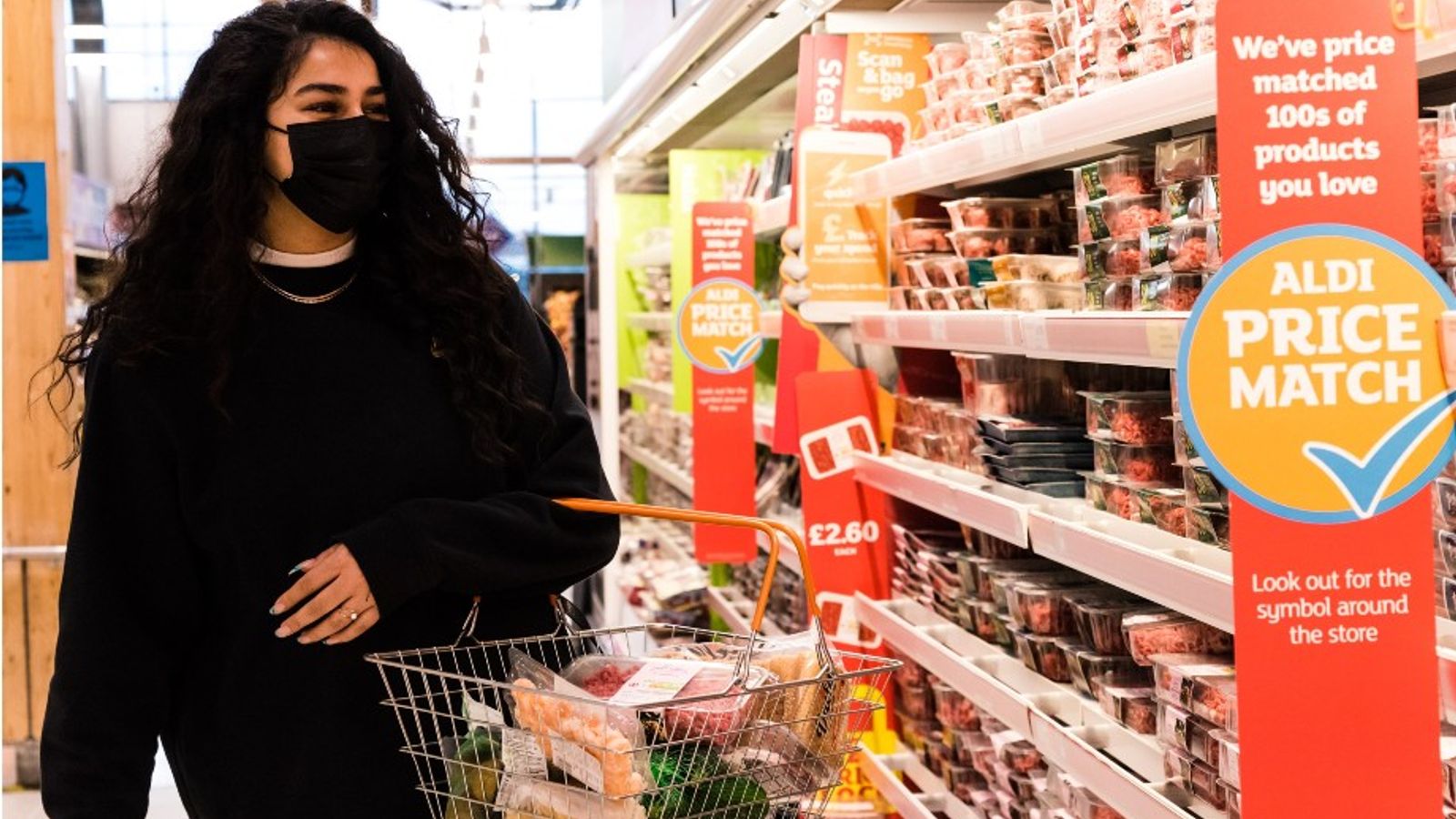Shoppers made 58 million more trips to the supermarket in the last three months than they did a year earlier as COVID-19 vaccines were rolled out, industry figures show.
The increase was attributed to consumers feeling more confident about venturing out to stores after many of them had their jabs.
But the figures from data company Kantar said overall take-home grocery sales for the 12 weeks to 16 May were down 0.4% year-on-year to £31.3bn.
That reflected a comparison with a period of “exceptionally high” sales in 2020 as shoppers stocked up at the start of lockdowns, Kantar said.
But the data also revealed that basket sizes were falling – with shoppers moving away from the big weekly shop back towards levels seen before the pandemic.
The sales level for the period was still £3.8bn higher than the same level in 2019.
But it also seemed to reflect the easing of COVID-19 restrictions during the period – with outdoor dining and hospitality allowed from the middle of April.
Another trend noted in the report was consumers apparently thinking more about their personal appearance – with sales of shoe polish and hair styling products growing by 50% and 26%.
Fraser McKevitt, head of retail and consumer insight at Kantar, said: “As lockdown eases, people are returning to more normal habits and we can see that reflected in grocery sales.
“Many of us this time last year were eating all our meals at home and we bought extra food and drink as a result.
“Now we’re seeing take-home grocery sales dip versus 2020 as people are able to eat in restaurants, pubs and cafés and can pick up food on the go again, grabbing a sandwich, for example, while they’re out and about at the weekend.”
Mr McKevitt added that the vaccine roll-out meant that “consumers are getting more confident venturing back out to stores”.
“Shoppers made 58 million more visits to the supermarket this period than they did in May 2020.
“The greatest acceleration has been in London, where trips are up by more than a quarter.
“And in other changes, there are signs that the big weekly shop, which made a comeback last year while people tried to reduce time spent outside of home, may be on its way out.”






















